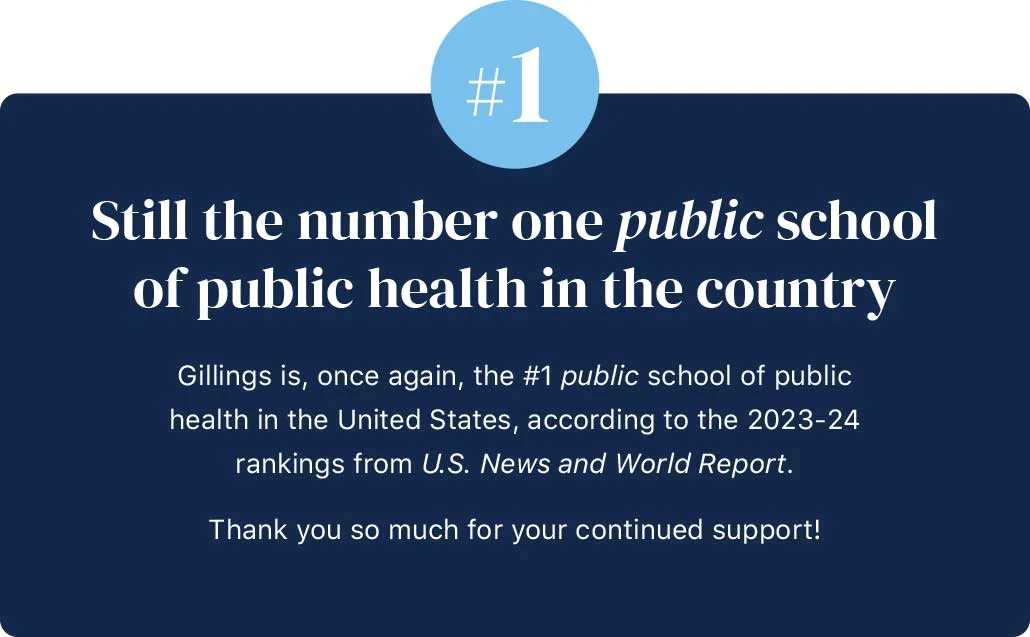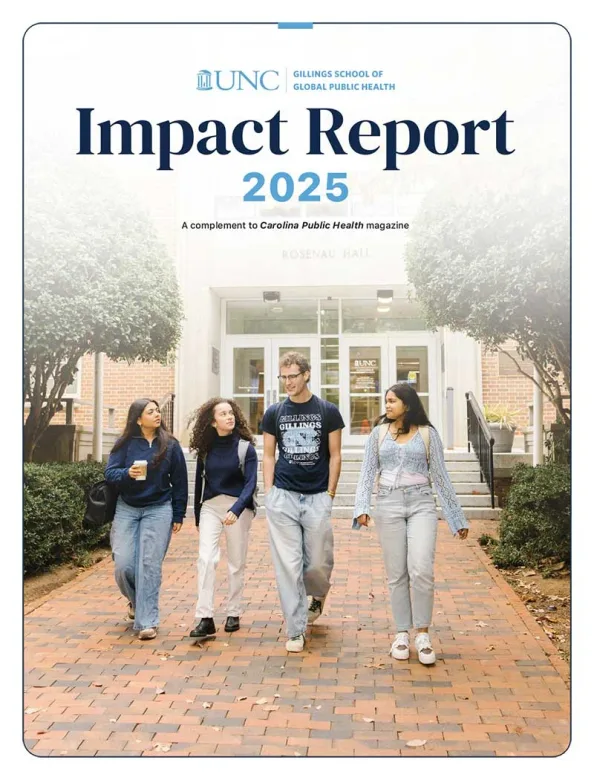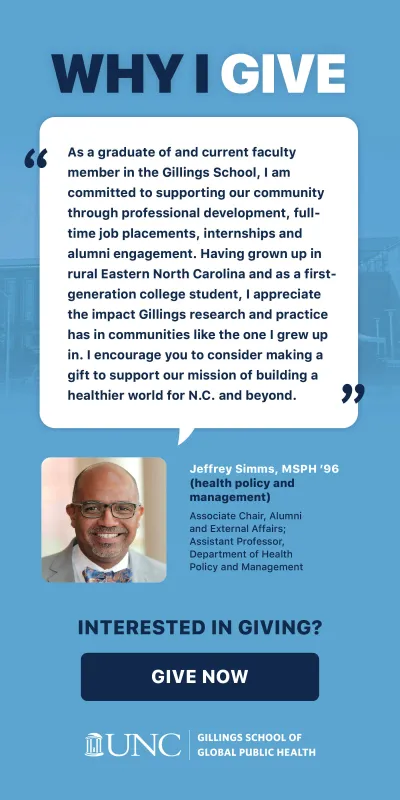Building trust, one data point at a time
Dr. Bethany Hedt-Gauthier shares her path into public health, her advocacy-driven research in maternal health and the values guiding her work and mentorship.
Meet Bethany Hedt-Gauthier, PhD, who joined the Gillings School this year as a professor of maternal and child health and biostatistics.
Where did you grow up?
I grew up in Concord, N.C., and I went to UNC-Chapel Hill for undergrad as a math major. I’m Tar Heel born, Tar Heel bred.
When did you know that public health was your path?
After graduation, I became a Peace Corps volunteer, teaching high school math for two years in northern Namibia, and then staying for a third year as an HIV liaison for the Ministry of Education. The community I lived in had a 25% HIV prevalence at a time before treatment and testing were available. The effects were devastating in the day-to-day lives of my host family and students.
At the end of my second year, I went to a talk where someone was showing the trajectory of life expectancy in Namibia, the economic impacts under the current prevalence, and how that could be changed if HIV treatment was available and was effective. I went up to that person at the end of their talk and said, “What do you do for a living?”, to which they replied, “I’m an epidemiologist.” And from that point, I knew I wanted to go down the pathway of using numbers and math for scientific advocacy.
What are your research interests?
My whole career has been one of advocacy. I try to work in service to organizations that use research to understand health challenges or the impact of interventions. The organization I’ve worked with the most is Partners In Health (PIH). Paul Farmer, the founder of PIH, was my former chair, and I knew I wanted to work for an organization that had such a global impact.
PIH has a cluster of interests and priorities in maternal and child health, and as a result, my research has increasingly focused on the health of women and their children. And now, as an even more specialized subset of that, I study how people can engage digital technologies and AI for improved maternal and child health care delivery, particularly in resource-limited, rural settings. My largest research project is developing and evaluating an AI-enabled mobile health app that supports community health workers to provide post-cesarean care in rural Rwanda.
What do you do to unwind?
Outside of work, my biggest priority is nurturing my family: my partner, my eight-year-old and my ten-year-old. My kids are very adventurous and very creative, which makes me, by extension, very busy! If I truly do have time for myself to unwind, I enjoy West African and Zumba dance classes.
What do you think is the biggest public health issue today?
The biggest threat is trust in public health and the public’s willingness to recognize that public health is a worthwhile investment. The challenge with public health is that when you do it really well, you don’t actually see the benefits, because it just permeates everything. And when you pull out that investment, you see the consequences but may not necessarily draw the line between the consequences and that lack of investment. So, I am challenged by questions like: How do I advocate to my friends that they should continue to vaccinate their kids? How do I advocate to my community that they need to support public health boards? Or how do I advocate to my government that we need to continue to invest in public health research?
———
Congratulations, new distinguished professors!
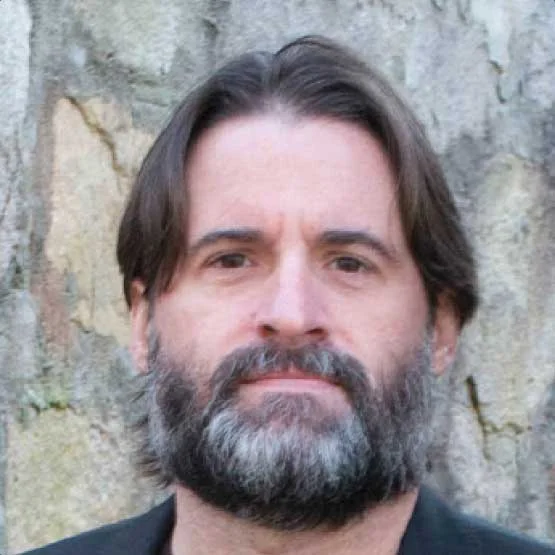
Stephen Cole, PhD
Cary C. Boshamer Distinguished Professor, Epidemiology
Dr. Cole is a leader in causal inference and epidemiologic methods, advancing research that improves the accuracy and reliability of public health evidence.
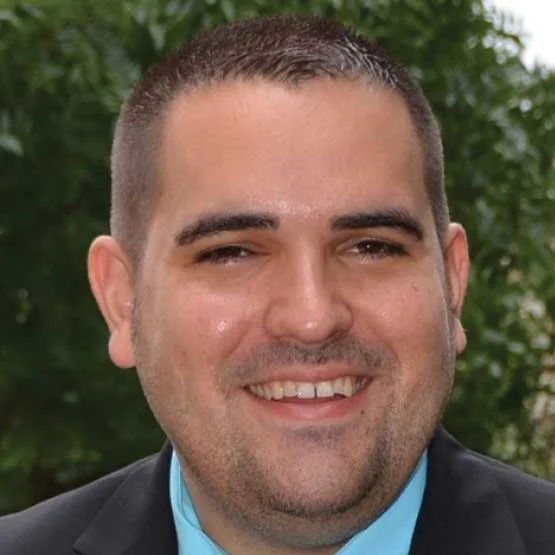
Jason Surratt, PhD
Cary C. Boshamer Distinguished Professor, Environmental Sciences and Engineering
Dr. Surratt studies how air pollutants form and transform, deepening understanding of atmospheric chemistry and its effects on human health.
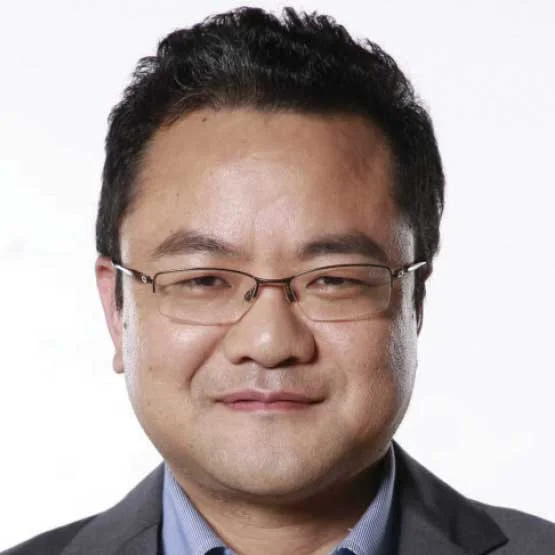
Hongtu Zhu, PhD
Kenan Distinguished Professor, Biostatistics
Dr. Zhu develops innovative statistical and imaging methods that drive discoveries in genetics, neuroscience and precision medicine.


